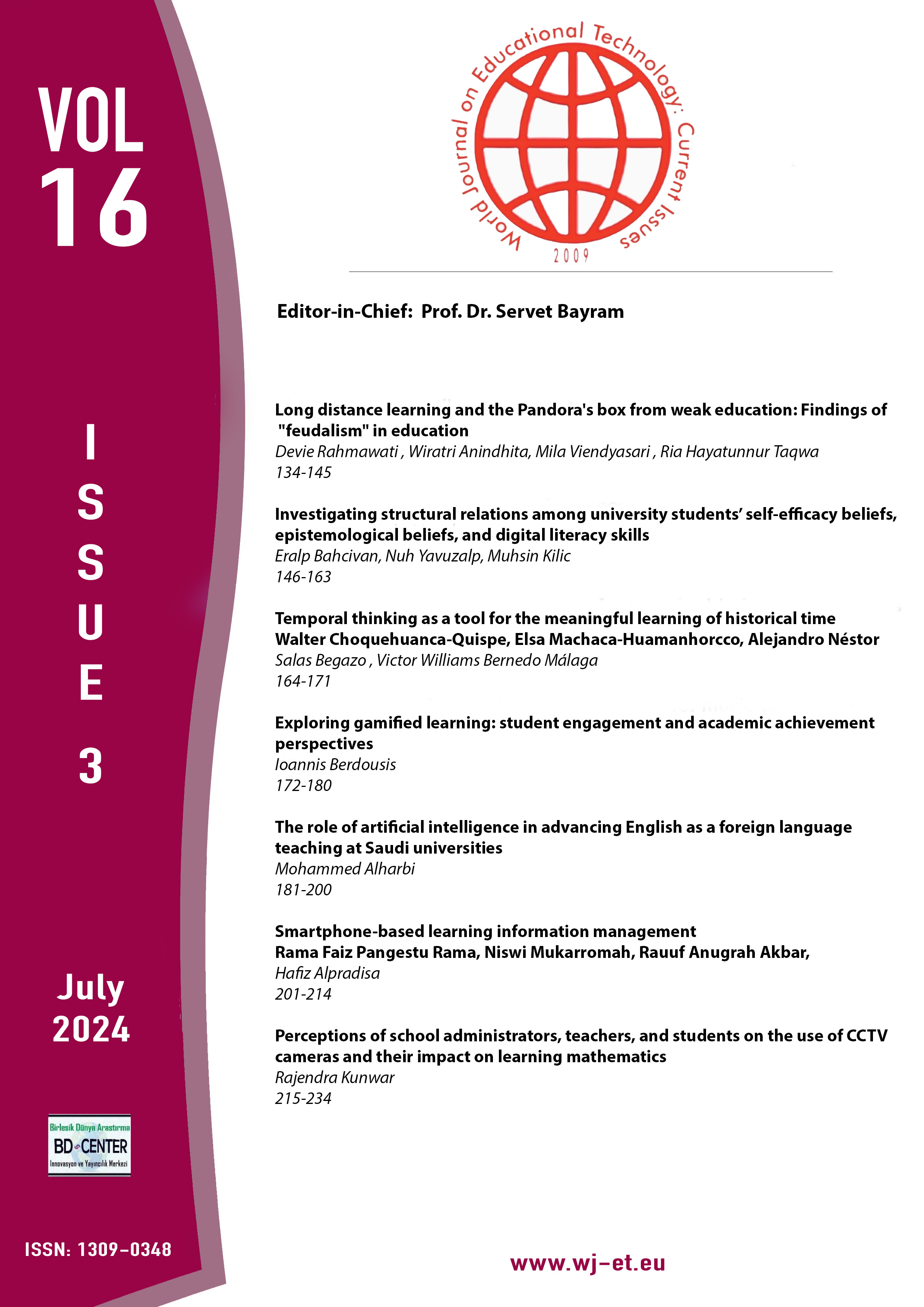The role of artificial intelligence in advancing English as a foreign language teaching at Saudi universities
Main Article Content
Abstract
This article presents findings from a comprehensive sequential explanatory mixed-methods study examining the perception of the transformative impact of Artificial Intelligence on English as a Foreign Language education at tertiary-level institutions. Through a 16-item psychometric scale purposefully designed survey, which was conducted with 192 EFL male and female teachers and in-depth, semi-structured interviews, insights were gathered into the challenges, opportunities, and evolving pedagogical approaches facilitated by AI-driven language learning platforms. Key findings indicate that AI-based applications and resources offer personalized learning experiences, catering to diverse learning styles, and enabling students to engage actively with language acquisition. However, while the majority of the teachers acknowledged the potential of AI to complement traditional instructions and pedagogies, enhancing individualized feedback and fostering EFL immersion some teachers expressed their reservations about students using AI in fear of academic dishonesty and disingenuity.
Keywords: Artificial intelligence; English as a foreign language; personalized learning; pedagogical innovation
Downloads
Article Details

This work is licensed under a Creative Commons Attribution 4.0 International License.
World Journal on Educational Technology: Current Issues is an Open Access Journal. The copyright holder is the author/s. Licensee Birlesik Dunya Yenilik Arastirma ve Yayincilik Merkezi, North Nicosia, Cyprus. All articles can be downloaded free of charge. Articles published in the Journal are Open-Access articles distributed under CC-BY license [Attribution 4.0 International (CC BY 4.0)].
Birlesik Dunya Yenilik Arastirma ve Yayincilik Merkezi (BD-Center)is a gold open-access publisher. At the point of publication, all articles from our portfolio of journals are immediately and permanently accessible online free of charge. BD-Center articles are published under the CC-BY license [Attribution 4.0 International (CC BY 4.0)], which permits unrestricted use, distribution, and reproduction in any medium, provided the original authors and the source are credited.
